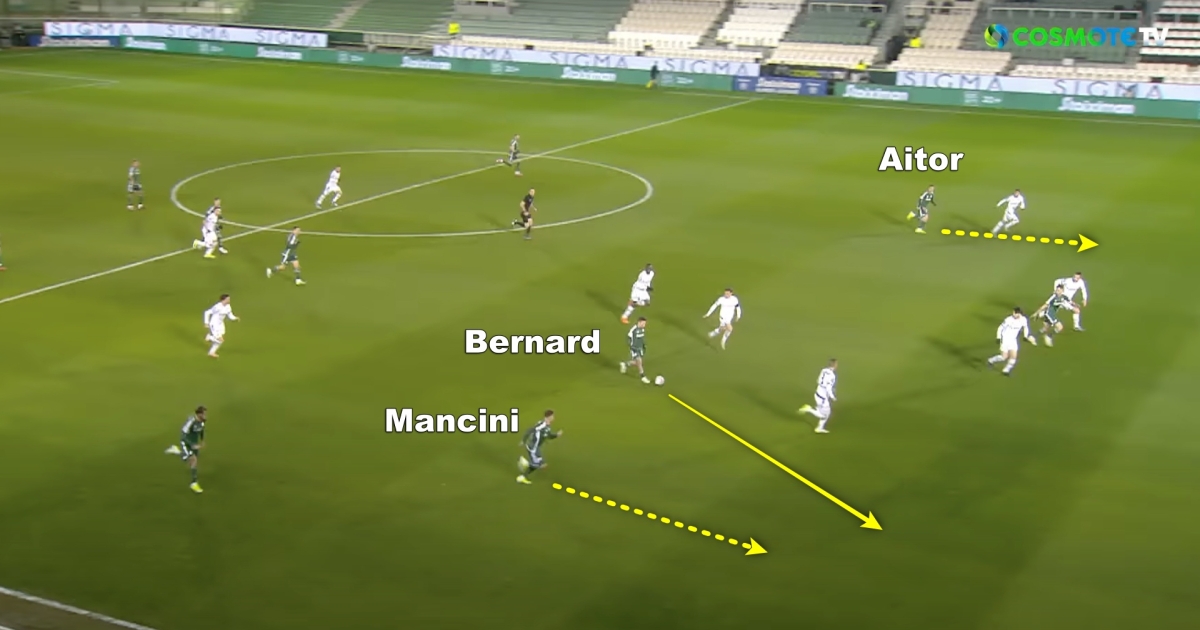
Vassilis Samprakos writes about the value of good communication between coach and football players during match development.
The only good aspect I find in the noise that surrounds Premier League stadiums relates to the opportunity we have to hear, as well as see, the information that the coaching staff relays to the footballers during play. Because the beetle coincided with the arrival of Fatih Terim, these clinical circumstances give you the feeling that you are watching a live documentary about his leadership and methodology.
In previous games, we have seen Terem establish a communication protocol with his players by selecting one player from each line to communicate with as the game progresses. The goalkeeper, the central defender (Aarão, when he is out there), the central midfielder (Velina, when he is on the pitch) and the central striker are the players he most often seeks contact with. Despite his age and arrogance, Terim has no preconceptions about his playing attitude. He is someone with a positive attitude, who tries with gestures and exclamations to reward good efforts, to encourage, but also to challenge his footballers and his team to change the tempo, increase the intensity, keep the pace, and maintain the momentum whenever they do so. Make it.
Terim is demanding, and he is keen to show it to them, that is, he is not someone who does not hesitate to pressure and 'harass' footballers to get more involved in the game or follow his principles. The match with Asteras Tripoli gave us a good example.
Towards the end of the first half, Terim saw Bernard, to whom the Turkish coach invested a large part of the attacking development in his movements without the ball but also in his choices with the ball. As if he was catching his breath, by that time the Brazilian had limited his movements without the ball and demanded it less at his feet. With his shouts and gestures Terim tried to get him back into the rhythm. Bernard “joined” the following attacks.
It seems that this attempt by Terim to put more pressure on Bernard so that he can be active on the field and take good initiatives and decisions continued during the break between half-time. And so Bernard reached Mancini, who paved the way for 1-0. Bernard was active and that's why he took advantage of the pass he received from Vaianidis, after the opposing goalkeeper's shot and his organization, he made a very good decision quickly and at the right time, the attack that scored the goal.
In a modest match, with a Panathinaikos team that lacks strength and offensive solutions on the bench, in front of a defense that was prepared for most of the match, a football player made a decision that contributed greatly to achieving the goal that opened the way to victory. A decision “caused” by the coach to return his player to the match.
This all seems like a detail. A detail that got Panathinaikos out of a difficult situation in a difficult match.
When he has the ability to listen carefully to his team, a coach can change the facts in a game with one voice and two gestures.

“Certified social media geek. Lifelong coffee aficionado. Passionate food buff.”





More Stories
“Kostas Manolas has been offered to PAOK!”
Lance: Sold out, OAKA packed for rematch
UEFA Champions League Qualifiers: Exciting Qualifiers – Football – UEFA Champions League